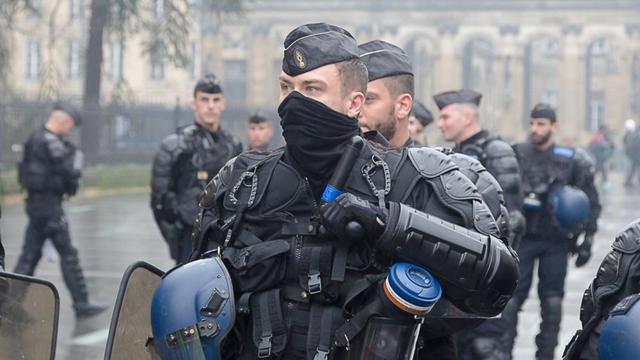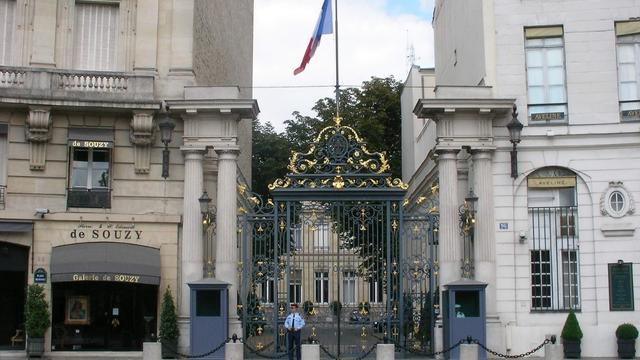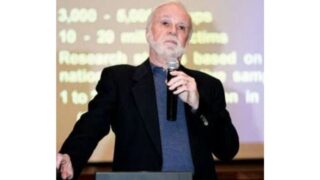A new law allows officers to bug houses and cars, hack email, and even impersonate mail carriers delivering packages to those suspected of “cultic deviances.”
by Massimo Introvigne


Imagine that you live in a country where “cultic deviances” from what the majority of the citizens regard as the normal, and normally tepid, behavior in matter religious is looked at with suspicion by the authorities. Your neighbors, who do not like you for whatever reason, report to a specialized anti-cult agency or to the police that you behave strangely and perhaps are part of a “cult.” At this stage, the police may be authorized to hack your email and your computer or place a hidden microphone in your house or your car. And beware when the mail carrier knocks at your door with a package: it can be an undercover police agent.
This is unfortunately daily routine in China, where thousands of police officers work full time to crack down on “cults,” or in Russia where all members of a religious group regarded as “extremist,” which does not mean violent but simply trying to convert members of the majority Russian Orthodox Church, may be visited by the Federal Security Service (FSB), taken to jail, and even tortured. The democratic world continues to denounce these blatant violations of religious liberty and human rights—and rightly so.
Most of those who protest the denial of religious liberty in Russia and China would be mightily surprised to learn that similar legislation has been introduced in a country normally considered as a beacon of democratic values, France.
A country with a strong secular humanist tradition, France has been suspicious of religion since the French Revolution, and has a specialized governmental agency and police units fighting against “cultic deviances” (dérives sectaires). It should, however, be remembered that being a member of a “cult” is not in itself a crime in France.
The so-called French anti-cult law of 2001 has been criticized by virtually all international scholars of new religious movements who have studied it, but even its provisions does not make belonging to a “cult” (secte) or engaging in “cultic deviances” a crime. Only putting a person through certain techniques in a “state of physical or psychological dependency” causing her serious harm is a crime. I, and most scholars in my field, believe that these techniques do not exist, but at any rate in the French system that they are at work in a certain group should be proved on a case-by-case basis.
So, simply by being part of a “cult” (secte) or of a movement suspected of “cultic deviances” (dérives sectaires) you are not a criminal—not even in France. The problem is that you are treated like one.
A new law of January 24, 2023, on the “orientation and programs of the Ministry of the Internal Affairs,” as its official comment specifies at no. 3.1.2, authorizes the relevant French authorities “to apply the special investigation techniques to the offence of abuse of weakness by an organized criminal gang (bande organisée) to facilitate the work of investigators in the combat against the cultic deviances.”


The reference to an “organized criminal gang” is the key to allow the use of the “special investigation techniques.” The new law suggests in its article 16 that the typical crime of the 2001 anti-cult law, “abuse of weakness” through the famous and mysterious techniques creating psychological dependence (another incarnation of the discredit theory of brainwashing), can be perpetrated by an “organized gang”—and perhaps this happens in most or even all cases, since it is difficult to imagine a “cult” without an organization. This allows both to increase the penalties, up to seven years of imprisonment and one million euro of fine, and to apply the “special investigation techniques” in investigating the alleged crime.
The “special investigation techniques” are those listed in Section XXV of the Code of Criminal Procedure. The police officers will be able to hack mail accounts, bug homes and cars, send fake mails and use false identities on social media, impersonate “cultists” or potential converts and operate undercover, and even—as mentioned earlier—“deliver in place of postal service providers and freight operators objects, goods or products” to those suspected of “cultic deviances.” Note that according to article 706-79 police officers can be assisted by “specialized assistants” deputized on a case-by-case basis, and I wonder whether in the case of “cults” these may include the anti-cult activists.
The techniques of Section XXV were created to combat terrorism and organized crime. While always potentially dangerous for the rights of the defendants, a limited use of these techniques may in principle be admitted when the life of hundreds of citizens or the security of the country are at stake. Remember, however, that in the case of “cultic deviances” when an investigation is started there is not even evidence that the group will end up being accused of using forbidden techniques of brainwashing (or whatever France prefers to call them), even assuming they exist.


The governmental anti-cult agency MIVILUDES itself admits in its reports that in most cases in which it asks the police to investigate nobody is committed to trial. In an article she published last year in the magazine of the Bordeaux Bar Association (“Revue des libertés fondamentales,” June 2022, 46–55), the then chief of the MIVILUDES Hanène Romdhane (who left the mission in stormy circumstances at the end of 2022) admitted that French prosecutors succeeded “very rarely” in obtaining court decisions punishing the crime of “creating psychological dependence” through “cultic deviances,” due to “the difficult legal characterization of the notion of mental control, whose contours are vague and far from the usual legal concepts.”
Rather than concluding, as scholars and courts did in other countries, that the idea that “cults” use mysterious and magically effective techniques of “mental control” is a pseudo-scientific myth, Romdhane asked precisely for a law allowing “the use of special investigation techniques to effectively combat cultic deviances.” She expressed the hope that perhaps “the use of these techniques could allow to overcome the obstacles that make it difficult to prove the existence of the psychological subjection.” However, if there are no fishes, even the use of the most draconian fishing techniques, such as throwing bombs into the river, would not allow the fishermen to capture them.
Only the anti-cult ideology and rhetoric seems to justify the police fishing party looking for imaginary crimes, and the enormous and unnecessary intrusion in the private lives and daily activities of peaceful citizens whose only crime is, in most cases, to think and believe differently from the majority.









